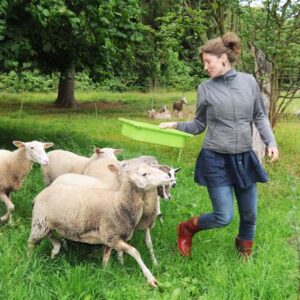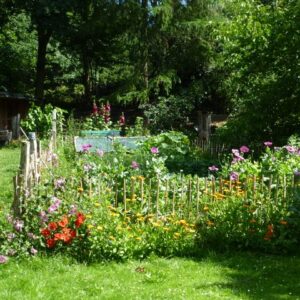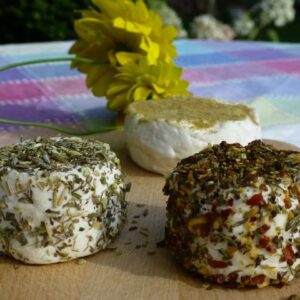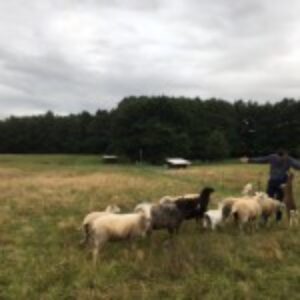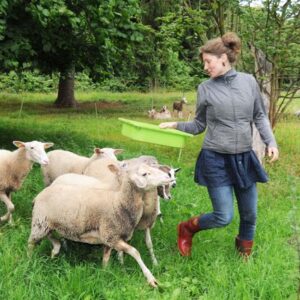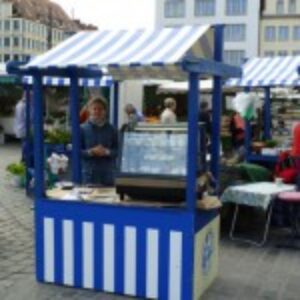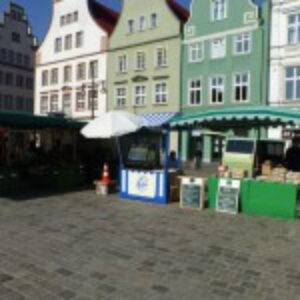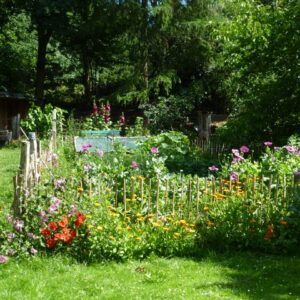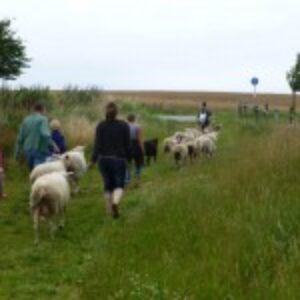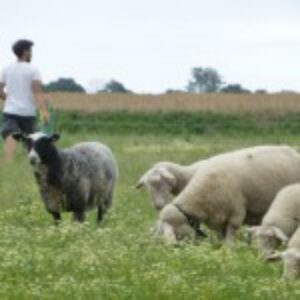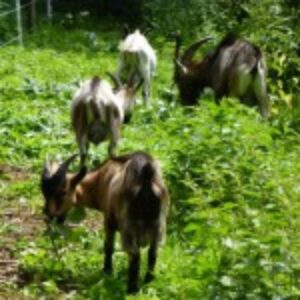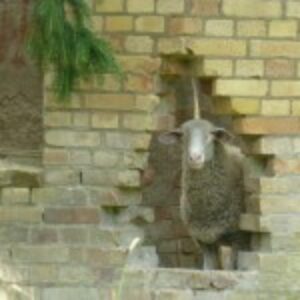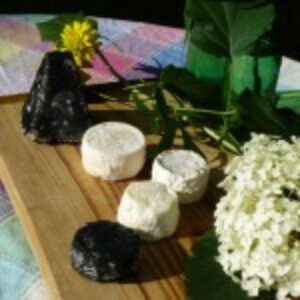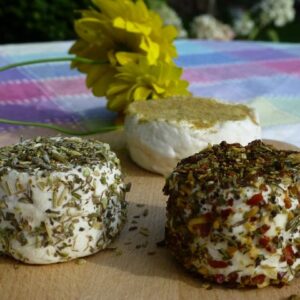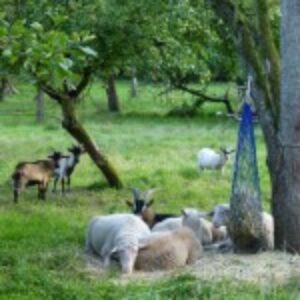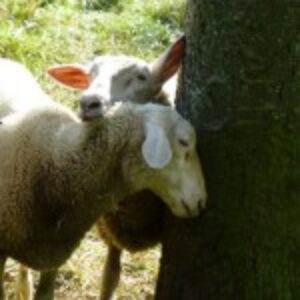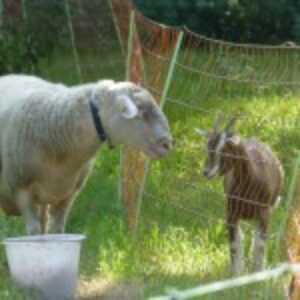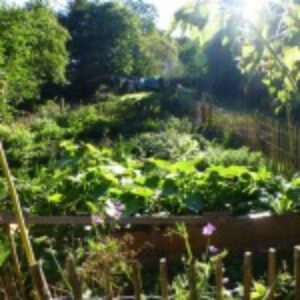The fruits of labour
Autumn seems to be turning into winter fast this year after a golden September and the last warm hours of this year spent at the beach. We went from several months of drought this summer to windy and wet weather in October. At least the pastures are looking better now than they did in September. Especially our new pasture, inaugurated in July, after sowing in spring, fencing in May and haying in early July. Although the soil is sandy and dry, which was bad for grass growth, our herd seems to somewhat prefer this pasture and its many herbs to the shaded and more humid orchard. As it is close to the road, we invested in 800 meters of 6 electric wires and 120 oak posts (90cm deep and 140cm above ground), quite a feat for Hannes and the wwoofers!
Hannes managed to finalise another one of his projects this season: the planning and building of a biological waste water treatment installation. 50 square meters, more than 50 tons of sand and 20 of gravel, shovelled and transported through the garden one wheelbarrow at the time, with help from wwoofers, neighbour and family… From now on our wastewater, and in summer also that from the guests’ apartments, won’t have to be pumped and transported by truck to the central wastewater facility. Instead our wastewater is cleaned in our garden by innumerable microbes living on the sand grains and decomposing our biological waste. This was on the to-do list from the start, so it feels good to strike it off!
As announced previously, this season was also our first one selling cheese and yoghurt on the weekly market on Saturday morning in Rostock. We started mid-April and I think it went quite well for our first year, with a good number of regular and enthusiastic customers. The market also offers small producers, mainly people selling surplus from their own vegetable and flower garden, the possibility to rent a small booth (see picture). This was really practical because we didn’t have to invest and transport and carry around too much, and it looked cute too.
The experience has however been an eye-opener regarding the market ‘culture’ in Northern Germany. Forget about the lively markets of Belgium or France that people visit to have a good time, meet-up with friends, have a drink and a bite, try out new things, where all your senses are stimulated – you get the picture. First the market is quite small for a city like Rostock, there are not that many visitors and they don’t dwell or spend much time on the market, and it is rather quiet… I even think I read in the rulebook that it is not allowed to leave your booth to approach people or to shout out special offers, the quality of your product let alone serve alcohol (a nice glass of wine to go with the cheese?) In addition to that, I underestimated the peculiar taste and lack of culinary curiosity of the locals. Basically they’d prefer eating some dodgy processed sausage than try goat cheese… You wouldn’t believe the number of people who won’t even try a bite and decide if they like it! I was truly shocked. Some blame it on the GDR and the low quality of its dairy products, and indeed I think in the South of Germany traditions are quite different. So the experience wasn’t as charming as you could expect, and I soon decided to look for other marketing opportunities as well. So far I’ve been able to convince a local farm shop, three high quality restaurants and one food cooperative to become regular customers (see the links on the webpage of ‘La Bergerie’)
What else?
We decided to keep the goats after all, although it is more work. Based on customer feedback, the sheep and goat mix is a distinctive factor and appreciated quality of our products. And I admit they are a lot of fun.
Last but not least, our workload will not be reducing in the following years with the birth of our daughter in October! This was another reason why working with orders and deliveries became more and more attractive in comparison to spending hot Saturday mornings standing behind a booth on the market… As the (recent) tradition goes, her placenta has been buried under a fruit tree in our garden. We planted another Morello cherry, for the one we had to fell to make way for the waste water treatment installation. I do wonder how next spring and next season will look like organisationally with baby, but somehow it will work out. So now let’s get ready for winter sleep…
